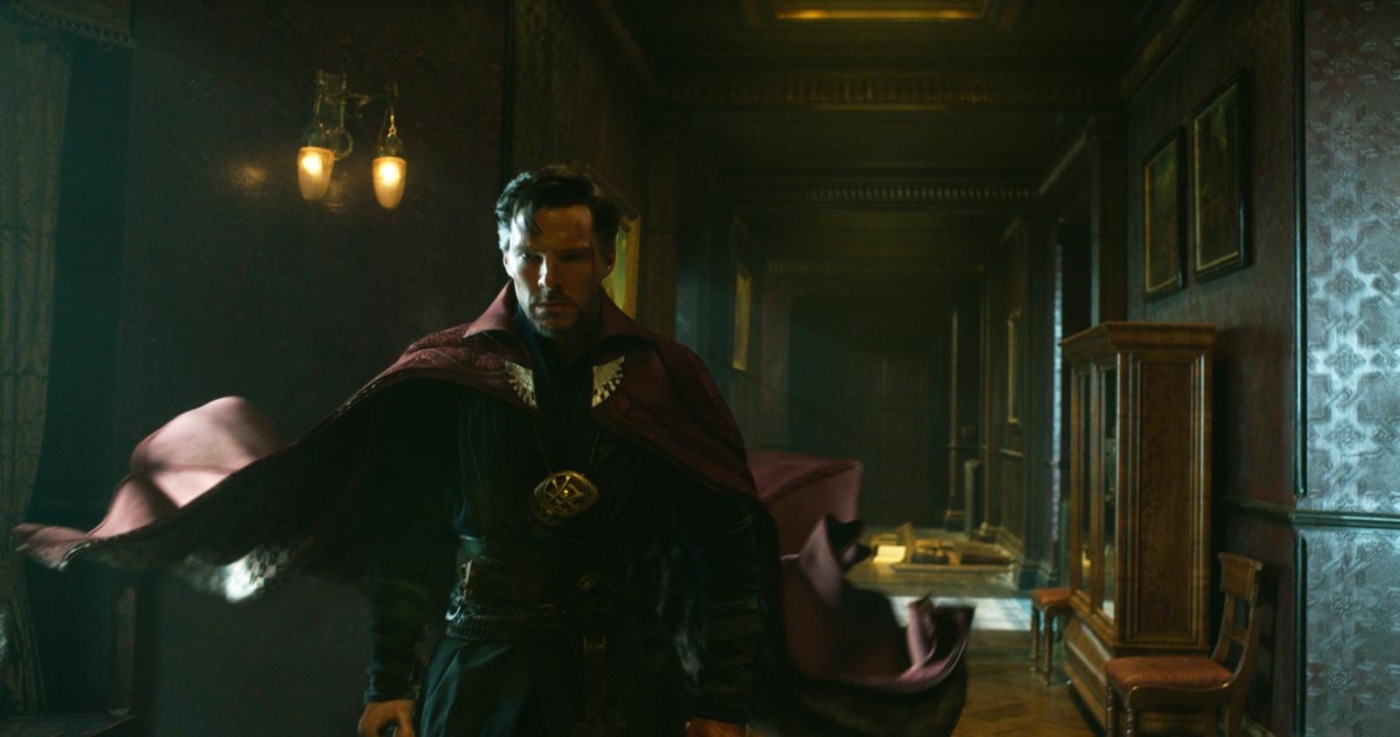‘Doctor Strange in the Multiverse of Madness’ is a big waste of potential
As Doctor Strange has told us in trailers, the multiverse is a concept about which we know frighteningly little. We’ve enjoyed multiversal adventures in Loki and No Way Home, and Marvel’s latest cinematic outing takes us even further into alternate realities. Doctor Strange in the Multiverse of Madness promised to be a darker experience, and it certainly delivers that, but it collapses under the weight of its own ambition. There’s both too much and too little going on, and a weak script struggles to connect the standout moments.
Perhaps more than any other Marvel film, this one looks like a comic book, and it looks like a Sam Raimi film – this is a major selling point
Doctor Strange (Benedict Cumberbatch) wakes up after a nightmare in which a version of himself is killed protecting America Chavez (Xochitl Gomez), a teenager capable of travelling between universes. Struggling with guilt over his role in Thanos’ snap and the loss of his relationship with Christine Palmer (Rachel McAdams), Strange is distracted when he encounters Chavez in his own reality. He learns that a force is eager to claim Chavez’s power for itself, and his attempts to defend the girl bring him, Wong (Benedict Wong) and Wanda Maximoff (Elizabeth Olsen) into contact with the multiverse.
One of the big selling points of this film was the return of Sam Raimi in the director’s chair, his first film since Oz: The Great and the Powerful. And he delivers in spades, balancing superhero antics with emotional moments and some genuine horror (well, to the extent the age rating allows, but it really pushes it). The villain, in particular, is responsible for some chilling moments. Perhaps more than any other Marvel film, this one looks like a comic book, and it looks like a Sam Raimi film – this is a major selling point. Coupled with a fantastic Danny Elfman score that hits all the right notes (but which largely ignores Michael Giacchino’s brilliant Doctor Strange theme), this adventure feels different from other Marvel films in the best way.
If you haven’t watched the mass of rubbish MCU TV shows, don’t expect to understand half of the references
In interviews, Raimi said that his version of the film was significantly cut down, and it really feels like it. Multiverse of Madness is paced relentlessly, rushing from moment to moment and never giving the viewer any space to breathe. It feels overwhelming, especially given that a number of the subplots don’t actually go anywhere. We speed through establishing the villain, the main threat, the thrust of the narrative, but the storytelling doesn’t grip. After a while, constantly running between CGI fights loses its lustre, especially as there’s no sense of the power level of any of the characters. To make things worse, Michael Waldron’s script is frequently contrived, with a number of laughable sequences and lines that make this a hard watch at times. At one point, important backstory is delivered to the viewer through a literal trip to the memory shop.
One of the big selling points of the film is the chance to traverse the multiverse, something that could bring a selection of alternate realities and cameos – this film could have been fan-service aplenty, surpassing No Way Home in terms of the familiar faces we’d see. Sadly, this is not the case at all. The film quickly settles into a groove in one alternate universe, and it feels like a big waste of potential. Sure, there are some cameos and moments that will please fans (with one I won’t spoil being a particular highlight), but don’t expect a lot. In some cases, if you haven’t watched the mass of rubbish MCU TV shows, don’t expect to understand half of the references.
A film spanning the multiverse could have been so much more, but this one really is so much less than the sum of its parts
Even the main cast don’t get off that lightly (with the exception of Olsen, who really shines here). After a few fun appearances in other MCU films, Cumberbatch feels indifferent to proceedings here – he has no real chemistry with Gomez, whose impact is limited to spouting exposition and being in peril, and the emotional moments are too rushed to land. McAdams gets more to do than in the original, but her character is still largely side-lined by events, until the finale in which she takes on some ludicrous responsibilities that aren’t set up. There are many other minor characters, who don’t have much time to make much of an impact, but just contribute to the feeling that the film has too many moving parts that it can’t juggle.
Multiverse of Madness is a hard film to review, because it brims with potential and is a necessary change of pace from cookie-cutter Marvel blockbusters – Raimi’s impact on proceedings certainly cannot be understated, resulting in a visually thrilling experience that offers some genuine horror. But it’s also very disjointed and rushed, and its uninterested actors struggle to lift a contrived script with too much and too little going on. A film spanning the multiverse could have been so much more, but this one really is so much less than the sum of its parts, and another stumbling block in Marvel’s misfiring Phase Four.

Comments